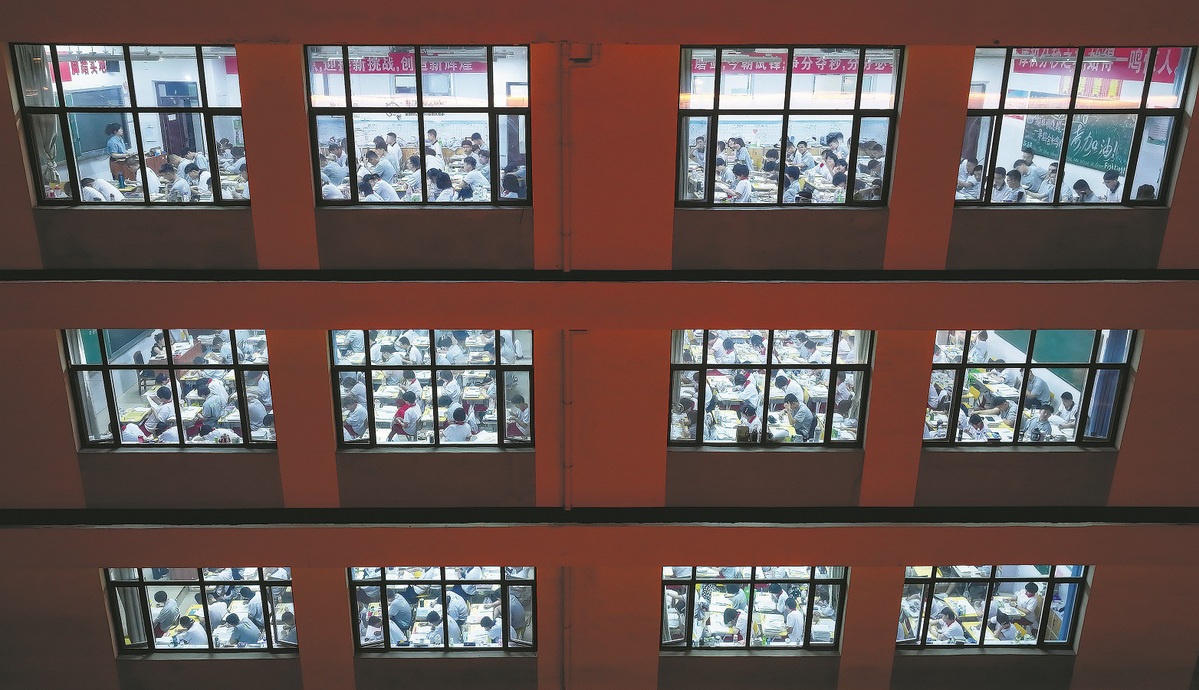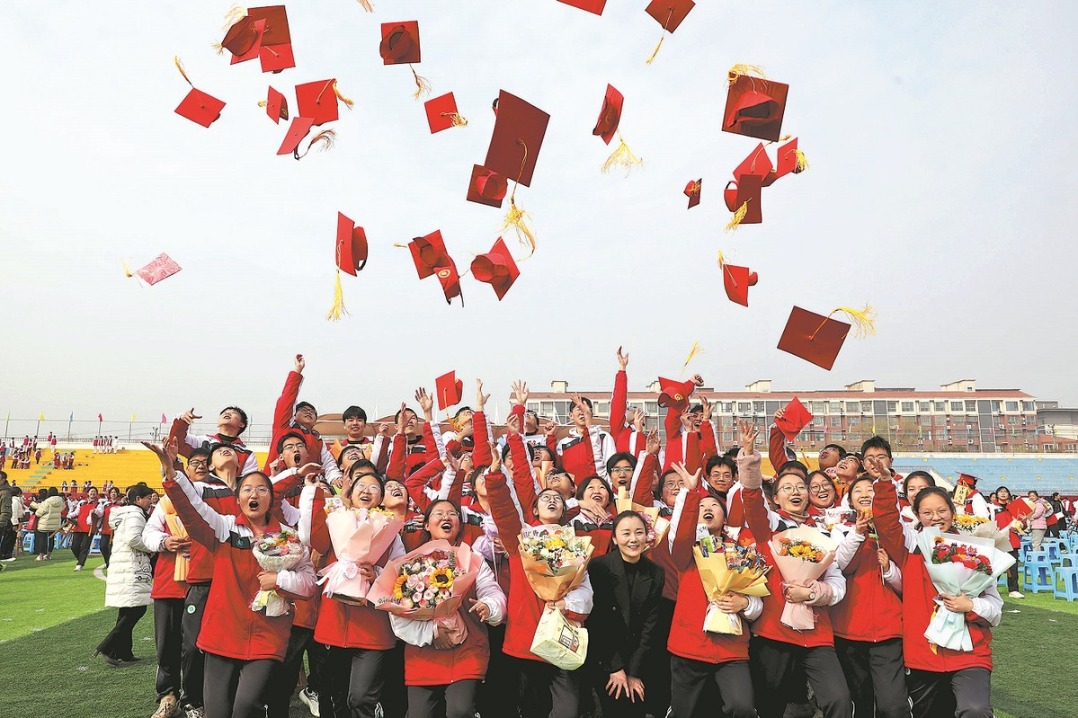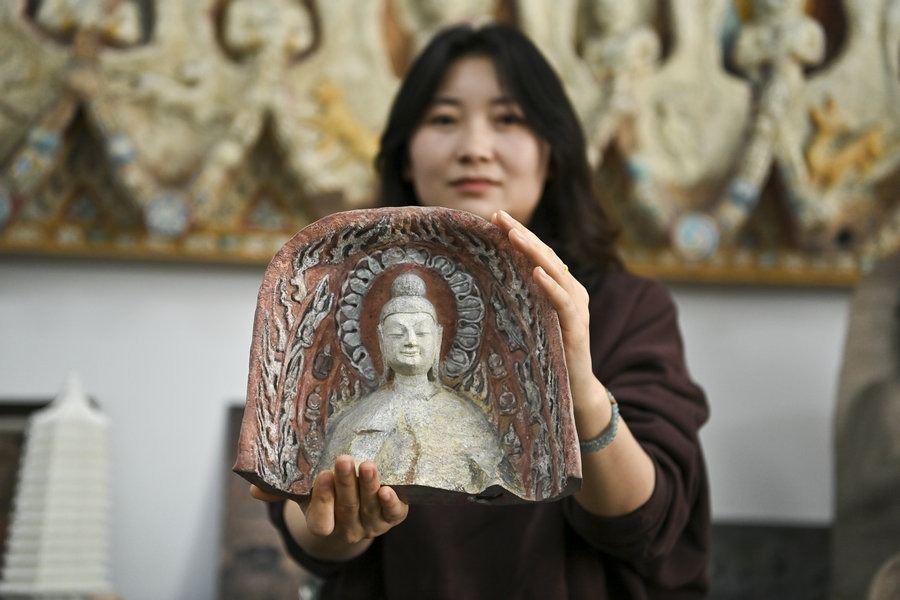Pressure of gaokao success looms over students' new weekend freedom
Policy to enforce two-day break sees mixed response of anxiety, relief


The recent enforcement of a two-day weekend break policy for high school students in China has sparked widespread debate, and a mix of reactions including relief, anxiety and resistance among students, teachers and parents.
Some argue it is a much-needed opportunity for stressed students to recharge their batteries, while others fear it will only hinder academic progress in regions with fewer education resources.
In the past, it was common for high school students to take classes during the weekend in preparation for the all-important national college entrance exam, or gaokao. However, after the new semester began in early spring, students in multiple provinces including Zhejiang, Jiangsu, Hunan and Guangdong can now enjoy two-day weekends.
Since April 11, the Ministry of Education has publicly punished a number of high schools in Hebei, Jiangsu and Henan provinces for having classes during weekends. The punishments follow a 2022 guideline issued by the ministry reiterating that high schools should not organize classes or tutoring sessions during weekends.
Three high school administrators in Henan have been removed from their posts, four schools in Jiangsu have had their honorary titles removed, while several schools in Hebei have been excluded from receiving awards for three years, all for policy violations.
The change, also aimed at countering the culture of excessive competition, has exposed the challenges in balancing educational equity, students' mental health, and the rigid demands of the gaokao.
The gaokao system, which prioritizes test scores for university admissions, remains the new policy's greatest challenge. Schools and parents equate long study hours with success, and in regions where students have relied on weekend classes to offset resource gaps there is wariness about the two-day weekend break.
Proponents of the enforcement, however, argue it aligns with broader educational reforms to nurture "well-rounded" individuals. They believe weekends can help students rediscover joy in activities such as sports and art — experiences crucial for emotional resilience. Research also suggests that adequate rest improves cognitive function, potentially boosting long-term academic performance.























